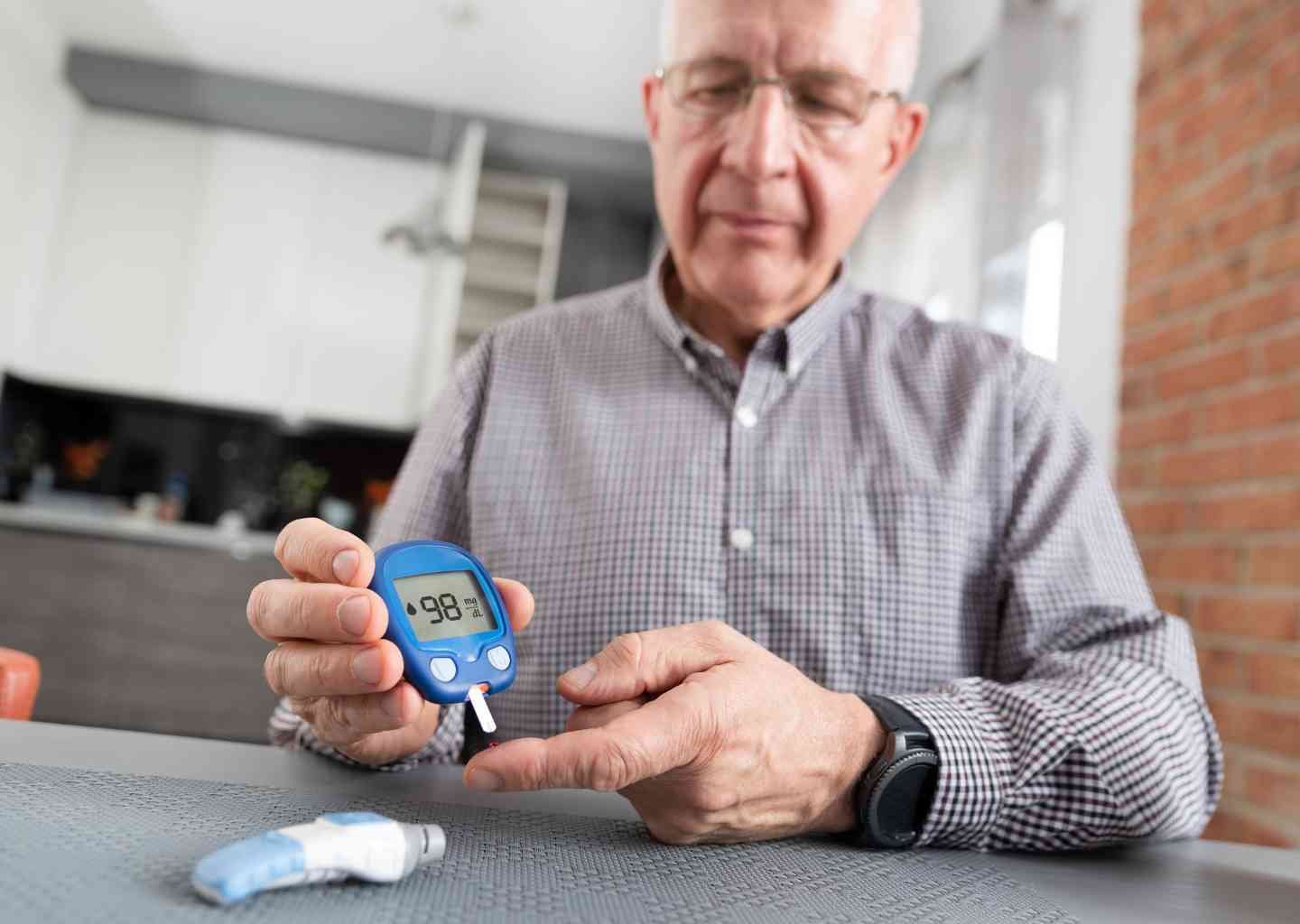Knowing the advances in caring for seniors with diabetes is important as diabetes is one of the most common illnesses in the United States. The Centers for Disease Control and Prevention estimates that more than 100 million Americans have diabetes and approximately 84.1 million Americans have prediabetes and are at risk of developing the disease in the future.
Diabetes is prevalent in older people, with more than 25% of people over the age of 60 suffering from the disease in the United States. It has some severe symptoms and complications including fatigue, slow healing, skin rashes, damage to blood vessels, blindness (caused by diabetic retinopathy), numbness and pain. It can also cause severe foot ulcers which can are difficult to treat and can require amputation.
Thankfully, scientists are often discovering new ways to diagnose, prevent, and treat diabetes. This article will look at the latest discoveries which can improve the outlook for seniors with diabetes.
Scientists discover mindful eating is effective at reducing diabetes risk
Most people eat while distracted — while watching TV, sitting in front of a computer, or having a conversation. Because they are distracted, they are often not aware of how much they have eaten.
Mindful eating involves concentrating on how you are eating and how your body feels while eating. It helps people enjoy their food more and understand when their body is feeling full. It is a simple technique that helps diabetics monitor their food intake and reduce the diabetes symptoms they experience. Researchers have performed studies that prove this technique is quite effective for many seniors.
Smart mat to reduce the risk of ulcers
Scientists and engineers from Jackson University in Mississippi have developed a smart mat to reduce the risk of diabetes-related foot ulcers occurring. Diabetes patients have high glucose levels in their blood, which negatively affects blood circulation. Poor blood circulation contributes to ulcer formation on the feet of diabetes sufferers, which often leads to amputation.
The smart mat measures the temperature of both feet to determine if there is a problem with blood circulation. Caregivers and physicians can use this information to prevent foot ulcers from forming.
Scientists to explore the ability of coffee to reduce the risk of diabetes
Researchers from the Northwestern University have begun a study to investigate the possibility that coffee can reduce the risk of type 2 diabetes. Previous studies have indicated that coffee may be able to reduce the risk of a variety of diseases including cardiovascular disease, Parkinson’s disease and diabetes. Dr. Marilyn Cornelis from the Northwestern University Feinberg School of Medicine will closely investigate how and why coffee may prevent diabetes.
Scientists gaining new understanding into how diabetes causes blindness
Researchers have discovered that a protein called 4E-BP1 may play an important role in the development of diabetic retinopathy — a diabetes-related disease that can cause blindness. They have discovered that this protein is regulated by glucose levels in the blood. This discovery may help them develop treatments to prevent retinopathy in diabetes sufferers.
Stress and depression may increase diabetes risk
Scientists have discovered that diabetes is more prevalent in certain groups of people, but they are still attempting to discover why. One research project undertaken this year found that high levels of cortisol, a hormone created by stress, can increase the risk of diabetes. Another project found a link between depression and diabetes. These findings emphasize the need for seniors to take care of their mental health and to take part in activities that they enjoy.
Moderate exercise improves memory dysfunction in diabetes patients
Type 2 diabetes can cause a variety of central nervous system-related complications including memory dysfunction. Researchers from the University of Tsukuba have discovered that moderate exercise can improve a patient’s memory while normalizing glycometabolism. This finding emphasis the importance of exercise for diabetes patients.
How All Heart Home Care can help
All Heart Home Care is the leading home care provider in San Diego. We supply talented and highly trained Caregivers to assist senior client’s at home. They can help clients with diabetes in many different ways:
- Prepare delicious and nutritious meals that are safe for diabetes patients to eat
- Provide transportation to doctor’s appointments and social engagements
- Perform exercise and physical rehabilitation to reduce the symptoms of diabetes
- Pick-up and manage their medications
If you are interested in learning more about advances in caring for seniors with diabetes and All Heart’s non-medical home care services, contact us today at 619-736-4677 for a free in-home consultation.







